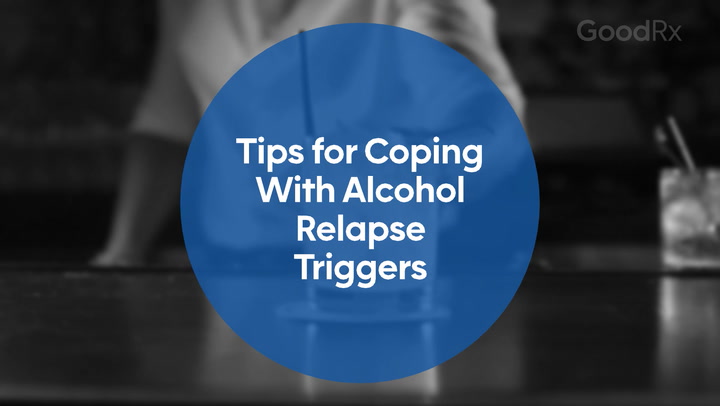
How to Help Someone With Drug Addiction and Support Their Recovery
Key takeaways:
Addiction can affect family and friends in many different ways, including physically, emotionally, and financially.
When talking to someone about their addiction, it is important to express your concerns directly and listen, while trying to avoid blame and shame.
To support a person’s recovery, you can offer to help them find treatment, attend therapy or a support group together, and find sober activities to do.

When a person is addicted to drugs or alcohol, it affects the whole family. You may be a parent, sibling, or child. Or you may be a friend. Either way, your loved one’s substance use may be causing you stress. You may be wondering how to help your loved one through their addiction.
While there is no one-size-fits-all way to approach this, there are some general guidelines that may be helpful and can increase the likelihood that they will be open to change.
There may be many ways that your loved one’s use impacts you and your family. Read on to learn more about these effects and how you can help someone stop using drugs.
Prescription Savings Are Just the Beginning
See what other benefits you qualify for—from cashback cards to cheaper insurance.

What are the effects of drug addiction on friends and family?
Addiction can affect family and friends in a number of different ways. These effects can be physical, emotional, and even financial.
Some of the negative ways that addiction can affect family and friends are:
Emotional: Family and friends may experience anxiety, fear, sadness, guilt, anger, and embarrassment due to their loved one’s addiction.
Financial: People who are addicted may use money that could be spent on their family for their addiction. They may even steal from loved ones to support their habit.
Conflict: Family and friends are more likely to experience disagreements with their loved one who is using substances.
Instability: People who are addicted may act in ways that are detrimental to their family and friends. This could lead to violence, abuse, separation, divorce, and even the removal of children from the home.
Children especially can be negatively affected by a parent’s substance use. A parent with an addiction may have a hard time providing for a child’s needs. They may put their addiction before their child’s well-being. Children of parents with substance use disorders are at greater risk for:
Physical, mental, and emotional abuse
Neglect
Physical health issues
Mental health issues
Behavioral problems
Poor academic performance
Substance use
How do you talk to someone about their drug addiction?
If you have a loved one dealing with an addiction, you may feel worried, sad, and even angry. These emotions are normal. The goal is to talk to them in a way that is productive rather than leads to conflict, blame, and shame. This can be very difficult when you are experiencing your own emotions about their substance use.
Here are some tips for talking to a person about their addiction:
Find a quiet and private place to talk. Avoid public settings.
Share your concerns about their addiction. Keep your statements short and direct. Avoid lengthy explanations. Just give one or two examples of your concerns, rather than several.
Avoid blaming and shaming your loved one. Be clear that it is the addiction that is causing the problem, not them as a person.
Listen to their views and experiences and validate their feelings. A simple statement like “That sounds very difficult” can go a long way.
Offer to help them find treatment or support groups. If they resist, explain that you respect their decision and are there to help if they change their mind.
What can be done to support a loved one on their journey toward getting off drugs?
As a family member or friend, you play a critical role in helping a person in recovery. You may be able to help them acknowledge their problem, get treatment, and begin the process of building a sober life. If your loved one does not want your help, don’t force it. Forcing a person who is not ready to change is rarely effective. Instead, be patient and continue to let them know that you are there to help when they are ready.
If your loved one is open to help, there are many different ways that you can support their recovery, such as:
Offering to assist them in finding a treatment provider or program
Assisting with any barriers that may make it difficult to get help, such as financial, transportation, or childcare issues
Attending a support group together
Participating in positive, sober activities
Helping them identify their triggers, find healthy ways to cope, and identify ways to avoid using again
Attending family therapy together
Avoiding using drugs and alcohol in front of the person
What is an intervention?
An intervention is an event where friends and family come together to confront a loved one’s addiction. Traditionally, people gather together to share how the person’s addiction has negatively impacted them and encourage the person to get help. They may also outline potential consequences if the person does not agree to get help.
Oftentimes there is a trained professional present to help with the intervention. But sometimes families will plan it on their own.
When is an intervention appropriate?
If you are concerned about a family or friend’s substance use, it can be helpful to talk to them about your concerns. However, you may not want to hold a traditional intervention like you have seen on television. Having several people surprise a person to confront their addiction may lead the person to get angry. It could also cause them to distrust you in the future.
Deciding whether an intervention is appropriate is challenging. What works for one person may not for another. Before having an intervention, you may want to consider how you think your loved one will react. Brainstorm ways that you can reduce their anger and defensiveness. Try to catch them at a time when they are most open to a conversation.
Some tips to keep in mind when it comes to an intervention include:
Waiting for the right moment. It’s important to not schedule an intervention when a person is under high stress or has just experienced a traumatic event.
Distinguishing between the addiction and the person. For example, when describing how their addiction has affected you, make sure to express that you understand that the addiction is to blame and not the person. This can help reduce shame.
Keeping it short. Continuing to talk about the many ways that they have hurt you can make them feel anger and shame. This won’t be helpful. Instead, keep it to one or two examples.
Listening to their feelings. Give your loved one a chance to speak, too.
Following through. If you state any consequences, be prepared to follow through with them. Not following through shows the person that you are not really serious and is a form of enabling.
Dos and Don’ts for helping a loved one overcome addiction
When it comes to helping a loved one with their addiction, keep the following in mind.
Do:
Find a private place to talk
Share your concerns
Keep your concerns short and to the point
Listen to what they have to say
Follow through on any consequences you establish with your loved one
Don’t:
Talk to your loved one when they are under a lot of stress
Blame the person for their addiction
Ramble on and on about how their addiction has affected you
Use drugs or alcohol in front of them
How can I find treatment for a loved one struggling with addiction?
If your loved one is open to getting help, you can offer to assist them in finding a treatment provider or program. You can start this process by having them schedule an appointment with their physician, contacting their insurance company for a list of covered providers, or consulting a helpline or online search.
Resources for substance use and addiction recovery
For help finding an addiction treatment program, you can call SAMHSA’s National Helpline at 1-800-662-4357. The free, confidential helpline is accessible 24 hours a day. Representatives can assist you in finding treatment, support groups, and community resources. You can also access SAMHSA’s online Behavioral Health Treatment Services Locator, which allows you to search for local programs in your area.
Support groups for people with addictions and their loved ones are also available. These groups are free and offered in person and online. Some of the most common support groups are:
If your loved one is not ready to seek help, you can still attend these groups to get support for yourself or learn more about your loved one’s experience with addiction. If you find yourself very distressed because of your friend’s or family member’s use, you may consider meeting with a professional to get your own support.
The bottom line
Having a family member or friend with an addiction can affect your life in many ways. If you are concerned about their substance use, you may want to talk to them about it and encourage them to get help. It is best to approach them privately and express your concerns. Listen to them. Suggest help but do not force them to get it.
If they resist your concerns, you want to respect their decision. Let them know that you are there to help if they change their mind. Ultimately, they need to make the decision to change for themselves. In the meantime, you may benefit from attending a support group for loved ones of people with an addiction.
Why trust our experts?


For additional resources or to connect with mental health services in your area, call SAMHSA’s National Helpline at 1-800-662-4357. For immediate assistance, call the National Suicide Prevention Lifeline at 988.
Daley, D. C. (2013). Family and social aspects of substance use disorders and treatment. Journal of Food and Drug Analysis.
Lee, K. (2017). An underappreciated intervention. American Psychological Association.
Nar-Anon. (n.d.). Home.
Narcotics Anonymous. (n.d.). Home.
SMART Recovery. (n.d.). Home.
SMART Recovery. (n.d.). SMART Recovery Family and Friends.
Substance Abuse and Mental Health Services Administration. (n.d.). Behavioral health treatment services locator.
Substance Abuse and Mental Health Services Administration. (n.d.). Supporting a loved one dealing with mental and/or substance use disorders.
Substance Abuse and Mental Health Services Administration. (2022). SAMHSA’s National Helpline.
If you or someone you know struggles with substance use, help is available. Call SAMHSA’s National Helpline at 1-800-662-4357 to learn about resources in your area.

























